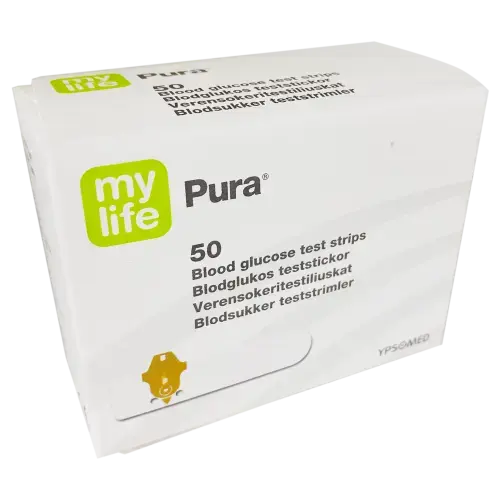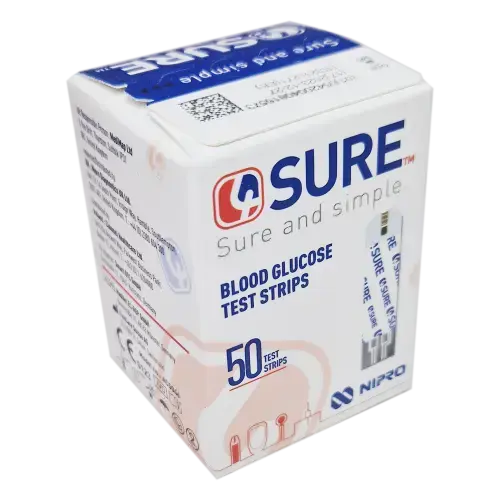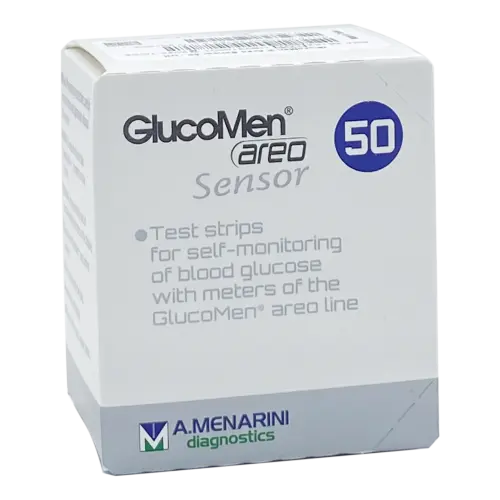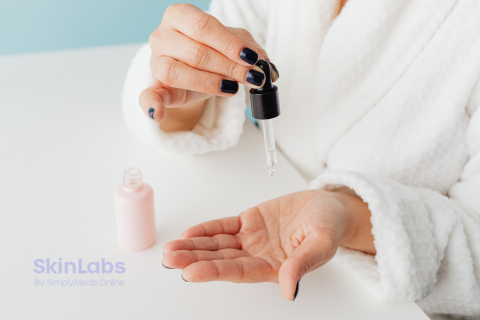What is Diabetes Awareness Month and Why is it Important?
Nov 10, 2025
Diabetes Monitoring
Each November, Diabetes Awareness Month serves as a much-needed reminder of the importance of understanding, managing, and preventing diabetes. The 2025 World Diabetes Day theme, “Diabetes and Wellbeing”, highlights that diabetes management isn’t just about blood sugar levels, but also about maintaining your overall physical, mental, and social well-being.
For millions of people living with diabetes, effective management can mean the difference between thriving and simply coping. Raising awareness encourages earlier diagnosis, better education, and stronger community support, ensuring that no one faces diabetes alone.
What Is Diabetes and How Is It Treated?
Diabetes is a long-term condition. When you are diabetic, your body handles carbohydrates differently. When not diabetic, our body changes carbohydrates into glucose. This glucose, or sugar, then enters the bloodstream. Insulin, which is a hormone produced by the pancreas, helps move glucose into cells for energy. In diabetes, this process doesn’t work properly, leading to elevated blood sugar levels.
There are several types of diabetes:
- Type 1 Diabetes: T1 is an autoimmune condition and is despite common misconceptions, is not caused by too much sugar. The body’s immune system chooses to attack the cells in your body that produce insulin. Those with Type 1 need daily insulin from injections or pumps as their body doesn’t produce insulin.
- Type 2 Diabetes: This is the most commonly diagnosed form of diabetes. It is often (but not always) linked to lifestyle factors. This is where the body doesn’t produce enough insulin or the body can’t use the insulin well enough to stop glucose from building up in the bloodstream, which causes damage. Type 2 diabetics can often manage their condition effectively with lifestyle changes such as changes to diet and exercise, and through taking oral medications such as Metformin or, for some, injecting insulin.
- Other Forms of Diabetes: This includes gestational diabetes (during pregnancy), which goes away post-birth, and rarer genetic types.
Lifestyle Changes for Better Diabetes Management
Maintaining good physical and mental well-being with diabetes starts with small, sustainable lifestyle choices:
- Balanced diet: Focus on whole grains, lean proteins, and plenty of fruit and vegetables while reducing refined sugars and processed foods.
- Regular exercise: Physical activity helps manage weight, improve insulin sensitivity, and boost mood.
- Monitoring: Regularly checking blood glucose levels with diabetes monitoring tools such as test strips or home test kits helps you stay in control. For some people, a CGM or Continuous Glucose Monitor, such as a Libre or Dexcom, may be a useful tool.
- Mental health care: Stress can directly affect blood sugar levels. Incorporate relaxation techniques like mindfulness, yoga, or even a walk in nature.
Being aware of what may affect your blood glucose levels when you are diabetic, and everyone is different, will make a significant difference to how well you manage it. For example, many diabetics find that hot weather, particularly heatwaves, has an impact on their blood glucose control, as can their hormone levels. This can be particularly difficult to manage during perimenopause, where hormones can change daily.
Medications and Monitoring
Medication plays a crucial role in helping many people keep their blood sugar within target ranges. Depending on the type of diabetes, this can include insulin, metformin, GLP-1 agonists, or SGLT2 inhibitors, among others. If diagnosed, your GP or specialist will work with you to find the best treatment or treatments for you.
Regular testing is equally vital. One of the most important tests is the HbA1c test, available as a convenient home blood test kit.
What Is the HbA1c Test?
The HbA1c test is a measurement of what your blood glucose levels have been like, on average, over the previous three months. This snapshot gives you and your healthcare provider a broader picture of what’s what with your blood glucose levels than a single finger-prick test does. Monitoring your HbA1c helps you and your healthcare team assess how well your diabetes management plan is working and whether any adjustments are needed.
For some who suspect they may be diabetic, and perhaps have a family history of it, being able to complete an HbA1c test from home can give useful information and peace of mind.
Test Strips and Self-Monitoring
Test strips are essential for day-to-day diabetes monitoring, helping to identify patterns and prevent highs (hypers) and lows (hypos). Consistent testing allows you to make informed decisions about diet, medication, and activity levels. This puts you in charge of your health and wellbeing, to test what works best for you in terms of diet and exercise, and when you need to get back in touch with your GP or diabetic team.
Signs That You Might Be Diabetic
Early detection when it comes to diabetes is key. Common symptoms of diabetes include:
- Feeling thirsty constantly, and needing to urinate frequently and frequent urination
- Unexplained weight loss
- Tiredness (more than usual). Ongoing lack of energy.
- Blurred vision
- Infections or wounds that aren’t healing/clearing up as quickly as expected.
If you notice these signs, speak to your GP or pharmacist and get checked out as soon as possible. Early diagnosis can prevent complications and support long-term well-being.
Understanding “Hypos” and “Hypers”
When it comes to diabetes, the saying, “knowledge is power”, is certainly true! For example, managing diabetes also means that you need to be aware of blood sugar fluctuations and the effect they can have.
- Hypo (Hypoglycaemia or “Lows”): This occurs when blood sugar levels drop too low (usually below 4 mmol/L). Symptoms can include shaking, sweating, dizziness, and confusion. Eating fast-acting carbohydrates like glucose tablets or juice can quickly raise levels.
- Hyper (Hyperglycaemia or “Highs”): When blood sugar levels rise too high, symptoms might include excessive thirst, tiredness, and needing to urinate more often. Prolonged highs can lead to complications, so it’s important to test regularly and adjust treatment as advised.
Regular diabetes monitoring helps you spot and respond to these fluctuations promptly. Again, everyone reacts differently to hypos and hypers, and what might feel very low for some may not be noticeable in others. That is why regular monitoring is important, ensuring that highs and lows are dealt with quickly and efficiently and supporting your physical and mental health in the long-term, as well as the short-term.
How Can YOU Help?
Everyone has a part to play in raising diabetes awareness and supporting those affected.
Employers - How Can You Help?
Create supportive workplaces by:
- Allowing flexibility for blood sugar checks and breaks.
- Providing access to healthy food options.
- Promoting wellness initiatives and mental health support.
Friends and Family - Find Out More
- Learn about diabetes so you can recognise signs of hypoglycaemia or hyperglycaemia.
- Offer encouragement for regular check-ups and lifestyle goals.
- The constant monitoring, appointments and the physical effects of dealing with diabetes can be tiring to say the least and affect people in many ways. By simply being there and happy to listen and offer appropriate support, you will help your friends and family more than you might think.
Sharing Awareness About Diabetes
Spreading awareness through conversations, social media, or sharing informative articles like this one can make a big difference. Check out our related post: Diabetes Awareness Week: Your Health Checks Matter.
Prioritising Wellbeing, One Step at a Time
Living with diabetes is a journey, but with the right tools, support, and mindset, you can enjoy a healthy and fulfilling life. By prioritising both physical and mental well-being, you will take meaningful control of your health and help others do the same.
To learn more, explore resources from Diabetes UK and visit Simply Meds Online for trusted diabetes monitoring supplies and expert advice.










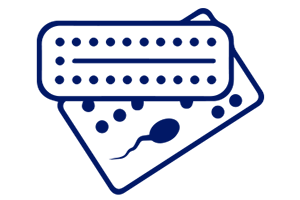






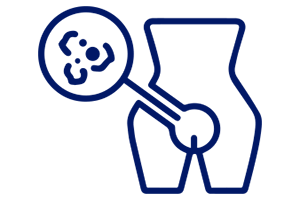










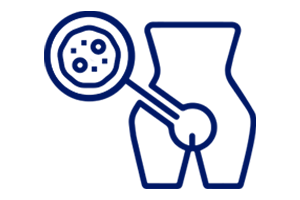
















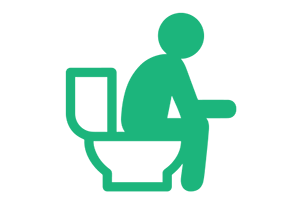

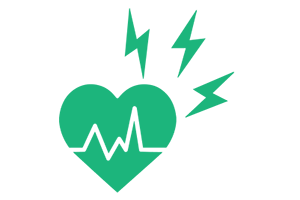































 Account
Account













